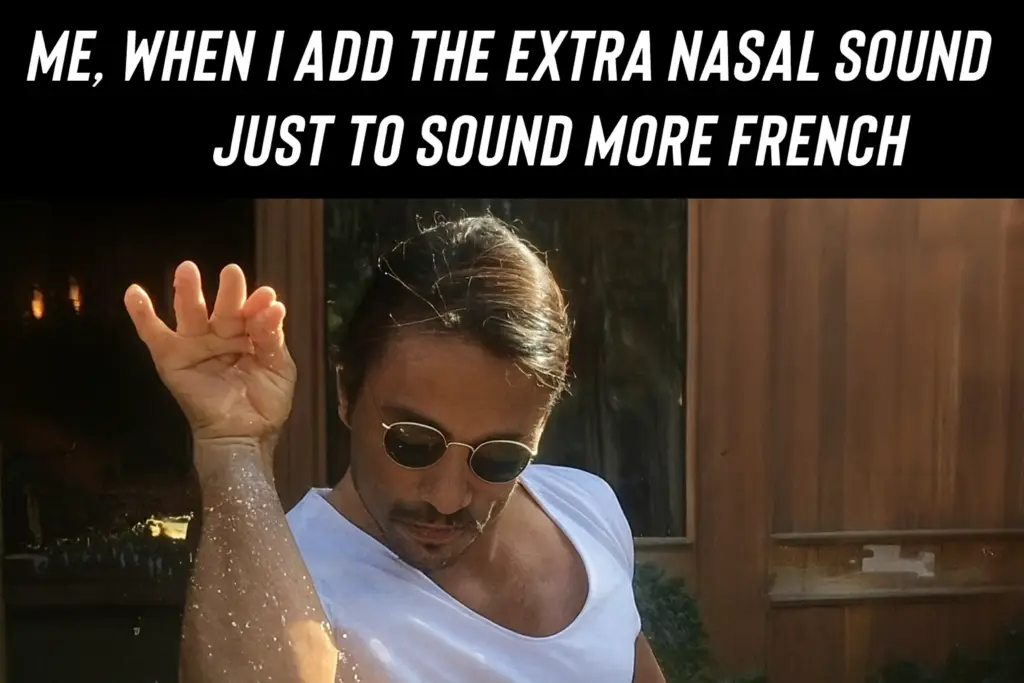Moving to France is a dream for many. The beautiful landscapes, slower pace of life, vibrant markets, and café terraces draw people from all over the world. But for many expats, whether you’ve just arrived, have been here for years, or are enjoying retirement, there is one invisible wall that can still make you feel like an outsider: the language barrier.
Even after months or years of life in France, you might still find yourself holding back. You understand more than you speak. You switch to English too quickly. You worry French speakers won’t have the patience. And slowly, the expat bubble forms.
But what if I told you the real barrier isn’t just the language… it’s your mindset? It’s as simple as at. Change your mindset and you’ll change your level of French. It works like magic.
In this article, we’ll explore how a gentle, daily habit — bilingual affirmations — can help you rewire your brain, build real confidence, and finally feel chez vous in France.
🎧 Click here to listen to the full episode on the Feel Good Talks podcast
📺 Or watch the affirmations on YouTube
- What Is the “Expat Bubble” and Why Is It So Hard to Break?
- Eager To Speak French With Confidence?
- Affirmations: A Surprising (but Powerful) Language Tool
- A Few Bilingual Affirmations You Can Try Today
- Why This Matters More Than Grammar
- Affirmations Are Not Magic, They’re Muscle Training
- How to Start Your Own French Affirmation Practice
- Start Here. Stay Consistent.
What Is the “Expat Bubble” and Why Is It So Hard to Break?
The expat bubble is a quiet, sneaky thing. At first, it feels like comfort: speaking English with neighbors, relying on Facebook groups, frequenting places where you know you’ll be understood.
But over time, it can lead to isolation, frustration, and a loss of connection with the life you imagined in France.
You start wondering:
- Why do I freeze when I try to speak?
- Why do I understand, but still hesitate?
- Why does my accent still make me feel self-conscious?
You’re not alone. According to the Expat Insider 2021 report by InterNations, over half of expats in France say it is difficult to live without speaking the local language, and many struggle to make local friends — both factors that reinforce the feeling of being stuck in an expat bubble.
Affirmations: A Surprising (but Powerful) Language Tool
At first glance, affirmations might sound fluffy. But they are backed by research in mindset psychology and Neuro-Linguistic Programming (NLP) — a method used by coaches and therapists to help rewire limiting beliefs.
When you speak affirmations aloud (in both English and French), you train your brain to associate speaking with safety, pride, and calm instead of fear or shame. You’re not just learning vocabulary. You’re creating new emotional responses.
In short: affirmations teach your nervous system that it’s safe to speak French.
A Few Bilingual Affirmations You Can Try Today
Here’s a small sample from the episode to help you get started. Repeat them slowly, feel the rhythm of the French, and let yourself soak into the language:
Je me sens chez moi en France.
I feel at home in France.
Mon accent est beau. Il fait partie de moi.
My accent is beautiful. It’s part of who I am.
Je parle le français avec confiance.
I speak French with confidence.
Je suis en sécurité, même si je fais une erreur.
I am safe, even if I make a mistake.
Want more? Listen to the full set of affirmations here. It’s a gentle, calming 15-minute practice you can use during your morning routine, walks, or journaling sessions.
Why This Matters More Than Grammar
As a French teacher, I see it all the time: learners who know grammar rules, who can read well, but who stay silent in conversation because of fear or shame.
Fluency is not built on perfect conjugations. It’s built on confidence, trust, and repetition. That’s why working on your mindset, even just five minutes a day, can create a massive shift in how you show up in French conversations.
By creating an inner voice that says it’s okay to speak up, you start to speak more. And speaking more means making progress.
Affirmations Are Not Magic, They’re Muscle Training
Just like physical exercise, affirmations work when you repeat them regularly. The first few times may feel awkward. But over time, something changes.
You begin to:
- Take a breath before switching to English
- Stay in the conversation, even with a mistake
- Notice your tone softening, your mind relaxing
- Speak with more fluidity, not because you’re fluent yet, but because you’re not afraid
And that’s the shift that breaks the bubble.
How to Start Your Own French Affirmation Practice

- Choose a time of day — mornings or evenings work best
- Repeat out loud — whisper if needed, but speak
- Pair it with breathing — let the words settle into your body
- Listen and follow along with my guided affirmations
Want to go further?
Sign Up for the Feel Good French Newsletter
Start Here. Stay Consistent.
Learning French as an expat, especially as an adult or retiree, is not about rushing or reaching perfection. It’s about showing up for yourself, consistently and gently.
Affirmations are not the only answer, but they are a powerful, loving start.
So the next time you hesitate to speak, take a breath and remind yourself:
Je suis capable. Je suis assez. Et je suis chez moi.
🔗 You might also like:
👉 Can you live in France without speaking French?
French Clothing Sizes in US: A Clear Guide for American Expats
Your first weeks in France are a string of small delights and quick puzzles. The…
20 Everyday French Expressions to Sound Native
If you want to sound French, it’s not only about grammar. It’s about rhythm, melody,…
Quick French Level Test Online for Expats and Future Residents of France
Thinking about living in France? Or maybe you’ve already started learning French, but you’re not…
How to Practice Speaking French in Nice (Beginner Friendly)
You finally made it. You moved to Nice, one of the most beautiful cities on…
How to introduce yourself in French | Video With Pronunciation
Saluer et se présenter en français.
5 French Learning Apps That Go Beyond Duolingo – With LingoDeer Taking Top Spot
As a French teacher working with expats and adult beginners, I’ve seen the same cycle…








